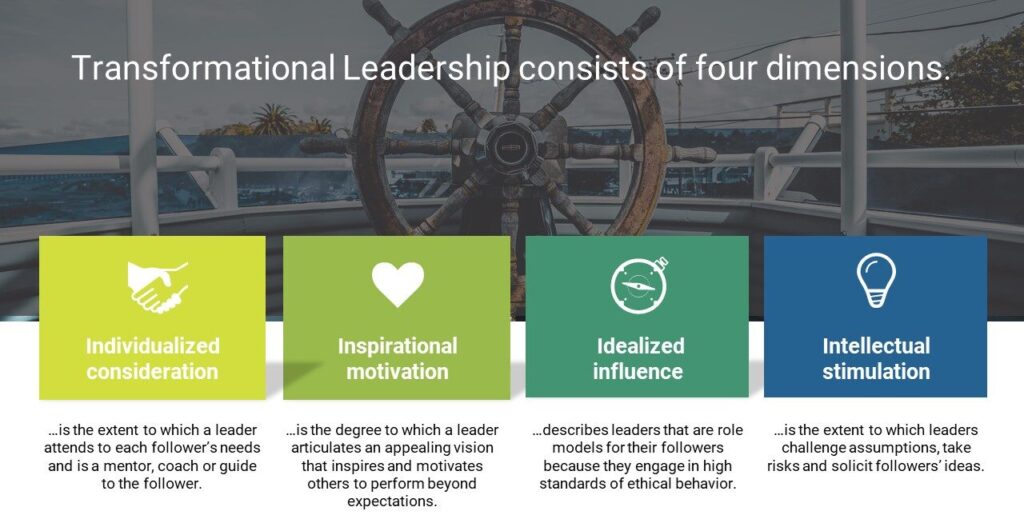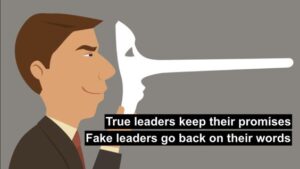Relevance of Commitment to Our Developing Nation
Leaders and citizens in developing nations are equally responsible for our position. Individually and communally, every adult is accountable for their destiny. Unfair it may sound, to varying degrees, I agree, but each has a significant role in the person they are and what they are going to be.
Dreams are for all, but the actualization of the goals is for those whose commitment is real. As we undertake to understand these statements better, different realities emerge:
- Leaders get into power with no vision and worse still have the wrong motives: Increasingly, those with considerable wealth sadly become the de facto leaders, ignoring how the wealth was acquired and who acquired it. Increasingly too, the eloquent get the best opportunities of convincing the electorate (in democratic systems) and find their way into leadership. The perfection of human folly is when criminals (including those from corruption) are speedily laundered and presented to represent, work for, and take charge of the hard-earned resources of the citizenry. Leadership has nothing of and is largely divorced from the above parameters.
 A servant leader takes control of the self and is committed to the development of society (Nathan, Mulyadi, Sen, van Dierendonck, & Liden, 2019). The individual that is ready to go into the ditch with the masses and together learn the way to get out of the gutter is a leader. A leader does not know but instead encourages the people as each discovers their Divine granted strength to know. A leader lays down one’s life for the masses (Jooli, 2019). A leader is not self-seeking and not self-centered. A leader desists from self-worth instead solicits societal and communal worth. In line with this write-up, a leader is visionary and is committed to self and collaborative vision. A leader knows when to say enough and hand over the mantle for others to lead. A leader shapes the future by nurturing the giftedness of future leaders. In that way, the leader is aware of their limitations and the subsequent need to be a steward in ensuring the sustainability of the organ when s/he is gone.
A servant leader takes control of the self and is committed to the development of society (Nathan, Mulyadi, Sen, van Dierendonck, & Liden, 2019). The individual that is ready to go into the ditch with the masses and together learn the way to get out of the gutter is a leader. A leader does not know but instead encourages the people as each discovers their Divine granted strength to know. A leader lays down one’s life for the masses (Jooli, 2019). A leader is not self-seeking and not self-centered. A leader desists from self-worth instead solicits societal and communal worth. In line with this write-up, a leader is visionary and is committed to self and collaborative vision. A leader knows when to say enough and hand over the mantle for others to lead. A leader shapes the future by nurturing the giftedness of future leaders. In that way, the leader is aware of their limitations and the subsequent need to be a steward in ensuring the sustainability of the organ when s/he is gone.
- Leaders live a facade that they are doing themselves well by enriching themselves at the expense of the citizenry: While keeping in mind that each of us is a leader in their small way, with the imminent lives of abject poverty when attending primary and secondary school, coupled with the hard work that a community put, leaders often feel obliged to reward themselves, at the closest opportunity. Many think that it is their right to spend their time in leadership, rewarding themselves for their sacrifices. Quotes from scriptures and writings are memorized and constantly repeated to the masses as a justification for their actions. In all these, the “commitment” is towards self-improvement and self-enriching.
 These acts are geared towards sanitizing their consumerism and materialism. To a large extent, their lavish lifestyles are justified. However, a society and a community are as wealthy as its poorest citizen. This is the basic Mathematics that is done to calculate a nation’s GDP.
These acts are geared towards sanitizing their consumerism and materialism. To a large extent, their lavish lifestyles are justified. However, a society and a community are as wealthy as its poorest citizen. This is the basic Mathematics that is done to calculate a nation’s GDP.
Household economies, security, the future of a country and imminent happiness, often linked to countries with the best institutions, cumulatively inform the wellness of the individuals in that nation.
The individual enriching of leaders, with the resources from taxpayers, and the subsequent justification of such, is easily questioned when the wealth struggles to go past a generation.
Social transformation speaks to the leaders, more so in the developed world. Care calls for commitment to them who we are, for it is only so that I sustainably am.
- Citizens have decided to continue behaving in the same way but expect different results: Unfortunate to the saying, only fools expect different results after engaging in the same activity. The citizenry has fallen back into their tribal cocoons even when the leader has been involved in corrupt dealings that have only enriched them and, if lucky, the immediate family. Leaders have promised milk from taps even when water taps run dry. The local citizenry has adamantly heckled them down when persons who have proven effective in other dockets, including international ones. Gender has been a dominant determiner of leaders, which has continued to deny developing nations leadership. Lessons from the developed world and some unprecedented but out of the expected trends that have led to success have failed to be repeated by the neighbours. The citizenry has opted to waste valuable production time, pursuing leaders already on the payroll. As long as these trends continue, the results will continue. Gradual change is expected from the progressive wave of nature. This process is prolonged due to the changing reality and the evolution theories (Whyte, 2007). The hope of it progressing towards the right direction is if the leadership does not negatively influence the change in their favor. With these, only generations to come may be factored in its fruition. This can only be altered by social transformation, where individuals catalyze the process to generate speedy results.
- Citizens expect change without being committed to effecting the change: Voting is the starting point of the citizenry generating change (World Development Report, 2017). This voting has got to be with the head and not guided by bribery, corruption, gender or negative ethnicity. This voting entails numbers. In that case, every vote counts. With the continued Free Primary Education, subsidized secondary and the subsequent support for tertiary education, the citizenry is expected to continue developing a critical mind (Dam & Volman, 2004).
This means that the populace can read for itself and criticize what the leaders engage in.
Promises that some leaders can never realize have to be squashed.

Those whose role is empowerment through Civil Society and FBOs have a Divine duty to continue educating the citizenry. After voting, the work of the citizenry is even more. All are called to follow up on their leaders demanding accountability (Melo, Martins, & Pereira, 2020). Numbers are critical in such followups.
While having the colonial hangovers, leaders may find this as damaging intrusion and even attempt to threaten the individual citizens; numbers matter.
An approach to a public office in numbers makes a mark. With the current mainstream and social media, the public has an additional arm that can act as the ombudsman. Speedily, any information, any injustice, quickly go into the air. This is not often a welcome situation for those in leadership. Additionally, continued unending struggles to seek services are needed. Giving up only gets leaders enriching themselves at the expense of the citizenry.
-
We all (individually and collectively) fall short of the commitment to effect change in our nations and hope that those from outside will affect the change: Those that occupy offices in institutions, unchecked, quickly desire to behave like minor gods, or even as though the remunerations they get are their right and are as a result of very great favor to the public. Quickly, when persons are in office, they forget that once an appointment letter is issued, the back of it, with slight changes, is the termination letter. In whatever docket, each individual must do their best. Many, if not all, developing nations have a challenge with identity concerning commitment. Those who have had the opportunity to work with the British can almost predict their specific and accurate way of management and administration.
The Germans’ hardworking nature and commitment are outstanding in nearly everything they engage in. Among the Asian Tigers, the diligence of the South Koreans, the focus of the Indians and the technical direction of the Japanese are all notable. The Chinese’s focus on reaching out to the African market has been shocking recently.
What is our identity as persons from the developing world?
It is easy to point fingers at the leaders, but what is my identity even at home and in the immediate locality?
It is easy to talk of males and then mention the ethnic community. I could also say I do the job at a slightly added level. Integrity-wise, however, and character-wise, the definition of the person’s identity collapses.
For those that cherish the eulogy reading at funerals, the predictions are evident as we write almost similar stories: birth, school, church, marriage, work, sickness, death. While we are uniquely created, that uniqueness fails to come out.
This could easily be a life not lived, or rather not lived in a worthwhile manner. A life of non-commitment to anything special except the pursuance of that which everyone else pursues.
What a sad uniformity founded on non-commitment!
Social transformation challenges that I look into my inner self. Through mindfulness guided by character strengths, one can be aware and engage in the small things, yet bring immense changes to oneself and the significant other. Through transformative social commitment, let us seek to be deliberate in our thoughts and deeds.

Conclusion
Social change is inevitable. If there is one thing that we are sure of, it is change (Bakamana & Kiingati, 2021).
It shall come whether we want it or not, whether we effect it or do not. Social change is a natural process that reflects and responds to the universe’s movement. Social change is not harmful to creation; it is sustainable and, in many ways, necessary for the continuation of creation.
However, with human beings’ continued influence on the natural process, vices have continued to be realized. The human being brought (and continues to increase) slavery, colonialism, neocolonialism, dictatorship, nepotism, negative ethnicity, poverty, corruption amidst the new normal of consumerism, materialism, environmental degradation and pollution, as well as unwarranted environmental exploitation of non-renewable resources. Even the exploitation of renewable resources is done as if we desire to finish them then jump onto another planet. These are not in tandem with social change. It would be unfair and unrealistic for any human being to expect social change to put suitable vices that it did not effect. It is, therefore, important that the human being, more so the one suffering the loss most, act. This act is what is called social transformation. It calls for precise planning at the individual level and later at the family level before thinking of the community level. It calls for attention to things, people, goals, values, and visions.\
The longer one postpones the commitment, the longer one pushes away happiness and wellness, at the individual and societal level in the present and in the time of, and for the future generations.
References
Ben-Zur, H., & Zeidner, M. (2019). Threat to Life and Risk-Taking Behaviors: A Review of Empirical Findings and Explanatory Models. Personal Social Psychology Review, 13: 109. DOI: 10.1177/1088868308330104.
Boin, A., Hart, P., & Kuipers, S. (2017). The Crisis Approach. DOI: 10.1007/978-3-319-63254-4_2. Available at https://www.researchgate.net/publication/321135712.
Glück, J, Bluck, S., Weststrate, N. M. (2018). More on the life experience model: what we have learned. The Journal of Value Inquiry, 53, 349–370.
Kiingati, J. B. (2019). World of Widows. Dar es Salaam: Claretian Publishers.
Kirouac, M and Witkiewitz, K. (2018). Identifying “Hitting Bottom” among individuals with Alcohol Problems; development and Evaluation of the Noteworthy Aspects of Drinking Important to Recovery (NADIR). PMCID: PMC6107067; NIHMSID: NIHMS1501419; PMID: 28557550. DOI: 10.1080/10826084.2017.1293104
Maanga, G. S. (2013). The Relevance and Legacy of Nelson mandela in the Twenty-First Century Africa: An Historical and Theological Perspective. Africa Journal of History and Culture, 5(5), 96-113. DOI:10.5897/AJHC12.022. http://www.academicjournals.org/AJHC.
Mulinge, P. (2018). The anchor of servant-leadership:Julius Nyerere and the virtue of humility. The International Journal of Servant-Leadership, 12(1), 195-228.
Sanchez-Escobedo, P. (2016). Personality traits and life experiences influencing highly creative people: Six life stories. Available at https://www.researchgate.net/publication/307509621
Slavicek, L. C. (2007). Modern Peacemakers-Mother Teresa: Caring for the World’s Poor. New York (NY): Chelsea House Publishers.
Udoh, E. C. (2020). Personality traits and Employee Commitment. International Journal of Advanced Academic Research, 6(1), 84-90.
Wolpert, S. (2001). Gandhi’s Passion: The Life and Legacy of Mahtama Gandhi. New York (N.Y): Oxford University Press.



I like this website its a master peace ! Glad I observed this on google .
Howdy! Do you use Twitter? I’d like to follow you if that would be ok. I’m undoubtedly enjoying your blog and look forward to new updates.
Thank You. Yes, my Twitter handle is @afroheritageconsult.